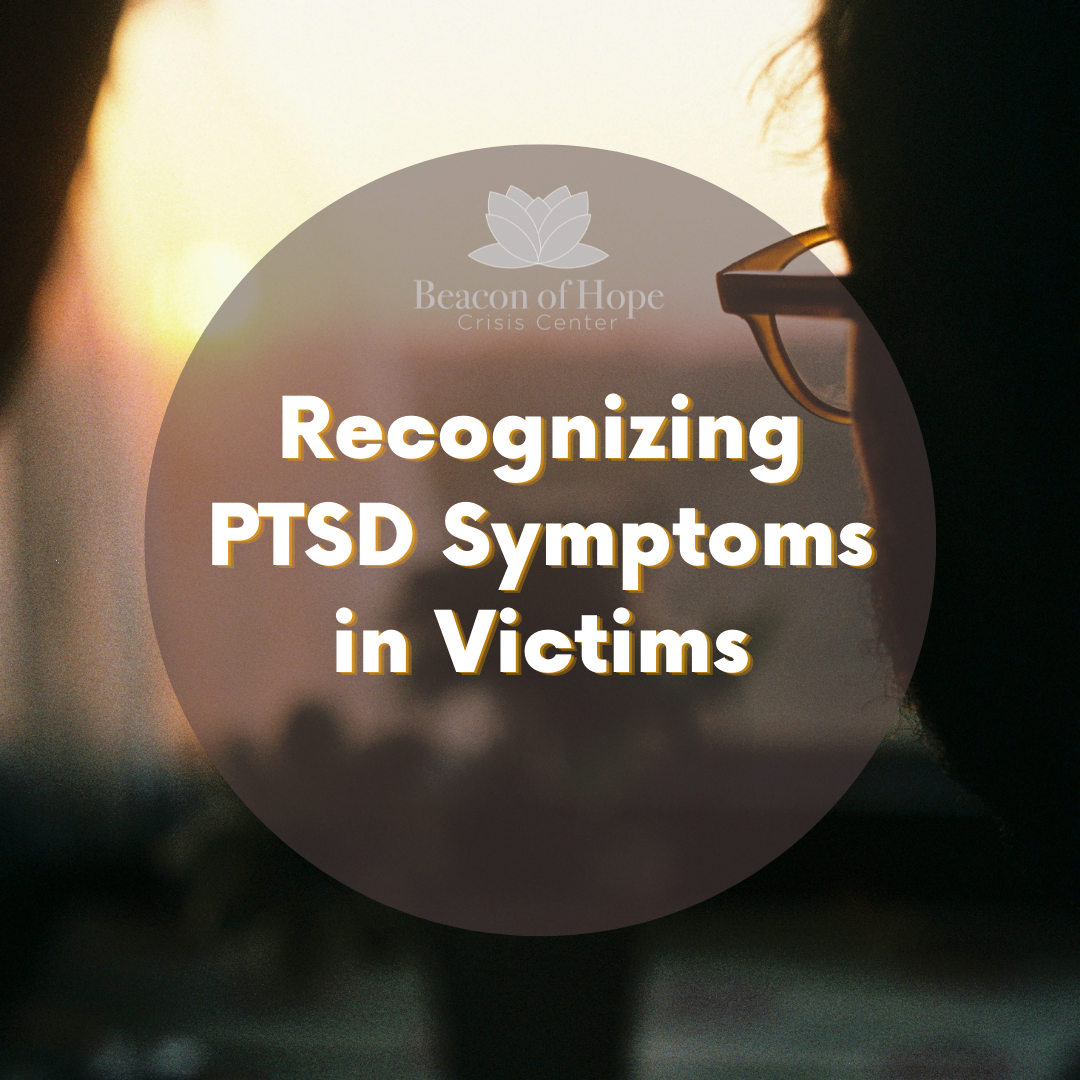|
By: Jenna Krathwohl PTSD, or post-traumatic stress disorder, is a condition that affects many survivors of abuse. PTSD first became a mental health diagnosis in 1980, thanks to the influence of many social movements including feminist, veteran, and Holocaust advocacy groups [1]. Although PTSD is often associated with war, PTSD can be caused by any traumatic event, including sexual assault and domestic violence. In fact, according to the National Center for PTSD, about 7 or 8 of every 100 people will experience PTSD at some point in their lives [2]. Because PTSD is so common, it is important that we understand how PTSD can appear in victims. PTSD symptoms do not always occur right after the traumatic event. In fact, they can occur many months or even years after the event.
There are two main types of symptoms that occur with PTSD. The first is re-experiencing symptoms. These symptoms involve the victim experiencing the traumatic event again in some fashion. This can look like flashbacks, bad dreams, and frightening thoughts. Often, physical side effects, such as sweating, hives, and/or heart palpitations, can accompany these symptoms. The second type of symptom includes avoidance symptoms. A person may want to avoid a thing, place, event, or object that reminds them of the event. For example, if a certain song played while a victim was being abused, they may take extreme action to avoid hearing that song again. They may also avoid thoughts or feelings related to the event, such as talking about the event. Other PTSD symptoms include arousal and reactivity symptoms and cognition and mood symptoms. Arousal and reactivity symptoms include being easily startled, feeling tense or “on edge”, difficulty sleeping, and angry outbursts. Cognition and mood symptoms include trouble recalling the traumatic event, negative feelings towards oneself or the world, feelings of guilt or blame, and loss of interest in enjoyable activities. If you suspect that you or someone you know is experiencing PTSD, there is hope. There are many treatment options, including talk therapy and medications, that help survivors heal and live happy lives. Also, Beacon of Hope Crisis Center is here to help. We work with survivors to help them move towards healing. If you need support, take the first step, and call our confidential crisis line at (317) 731-6140 today. Sources: [1] https://www.ptsd.va.gov/understand/what/history_ptsd.asp [2] https://www.nimh.nih.gov/health/topics/post-traumatic-stress-disorder-ptsd Comments are closed.
|
|
CAREER opportunities © 2025 Beacon of Hope Crisis Center Privacy Policy Accessibility Statement Board Portal Login |

